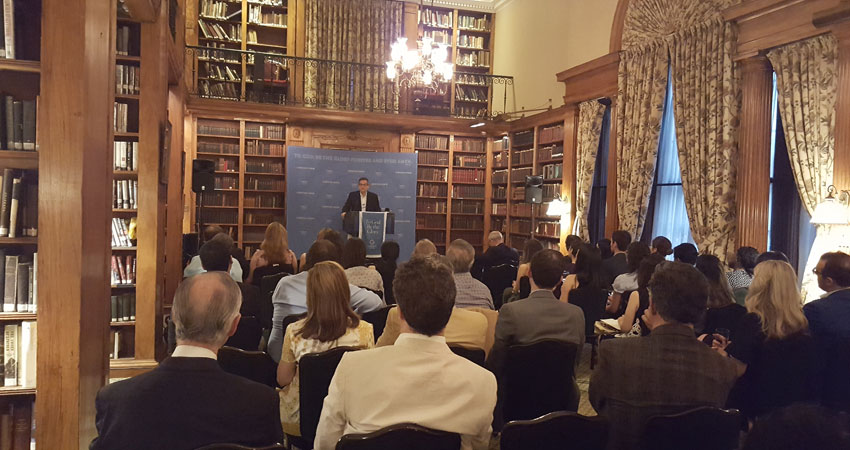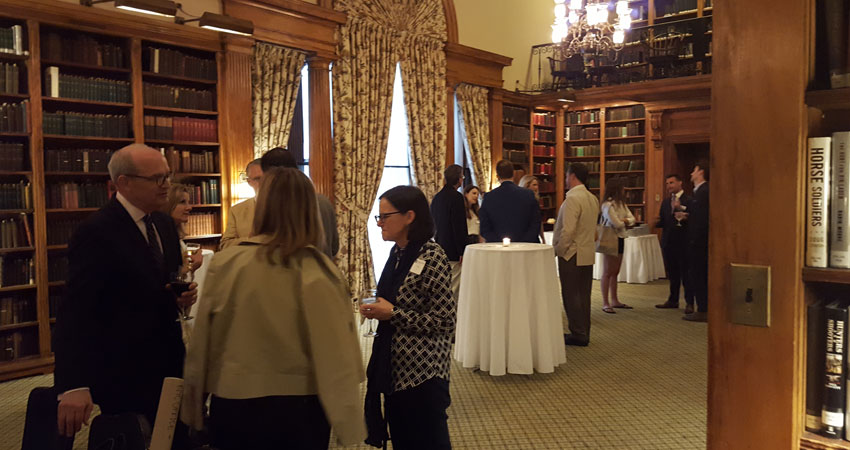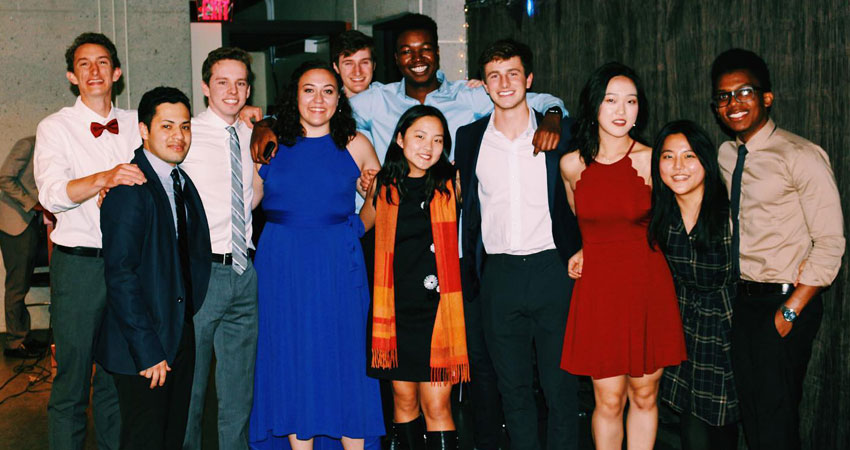Forum with David Skeel
Christian Union New York was excited to hold its first Forum of the year on Monday, May 20. The night’s speaker was David Skeel, S. Samuel Arsht Professor of Corporate Law at the University of Pennsylvania Law School. Drawing on his wide range of expertise, Professor Skeel spoke to the audience, not on bankruptcy law, but on an approach to apologetics fit for our postmodern era.

The short of Skeel’s argument was that the great works of apologetics from the past century are not so effective in today’s secular society. “The problem is that our current cultural moment looks very different than the cultural moment into which Lewis or Schaeffer and other people were writing,” Skeel explained. While C.S. Lewis’ Mere Christianity and the works of Francis Schaeffer were excellent for the societies they were writing to, they are less convincing to a society that has mostly grown up unchurched and is skeptical about the existence of an absolute truth.
In conversation with his students, Skeel has found that the majority feel at ease about denouncing the idea of absolute truth, while at the same time holding to some truths absolutely – particularly when it comes to matters of social justice. It isn’t hard to reveal this contradiction to them. However, contradictions do not cause difficulty for these students as they would a previous generation. “Their first reaction is ‘So what?’” said Skeel. “And their second reaction tends to be ‘Actually, that’s kind of cool. I’m pretty complicated. I can hold these complicated ideas in my head at the same time.’”
In light of this, Skeel says any new apologetic work needs to say something about two things in order to be effective: the myth of scientific progress (the assumption that science can and will soon be able to explain everything currently unknown), and social justice. Without addressing these important and highly contested issues, “you’re not answering the questions that people have,” Skeel says.

Skeel chose to focus, therefore, on topics such as consciousness, beauty, justice and suffering – topics that we all care a great deal about, and which Christianity has answers for, but which are still very much a mystery to materialists. To the Christian, all of these topics – our creative capacity, our experience of beauty, and our longing for justice – are all “moments in which heaven breaks into our daily lives” and “reminders that God is in the process of transforming this fallen world.”
Skeel concluded by saying that the best way to reach our current society is to make these topics the focus of our lives and not just our speech. In this postmodern era, how we live is going to be a much more effective witness than the words we say, and “When we participate in the creation of beauty, when we participate in the creation of justice, we are in some small way contributing to God’s eternal reclamation project.”
To learn more, listen to the audio recording above or check out Skeel’s book on which this talk was based, True Paradox: How Christianity Makes Sense of Our Complex World.


